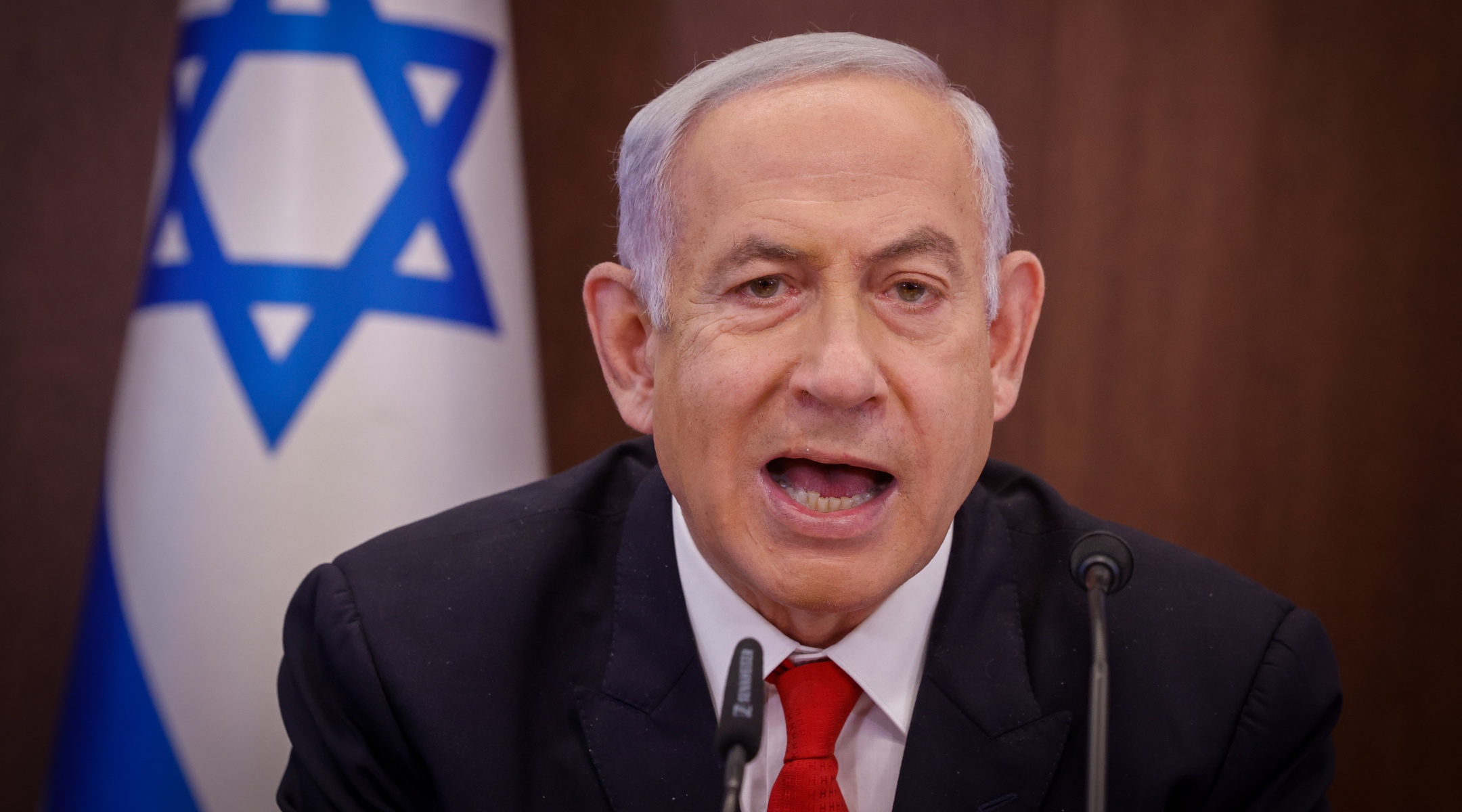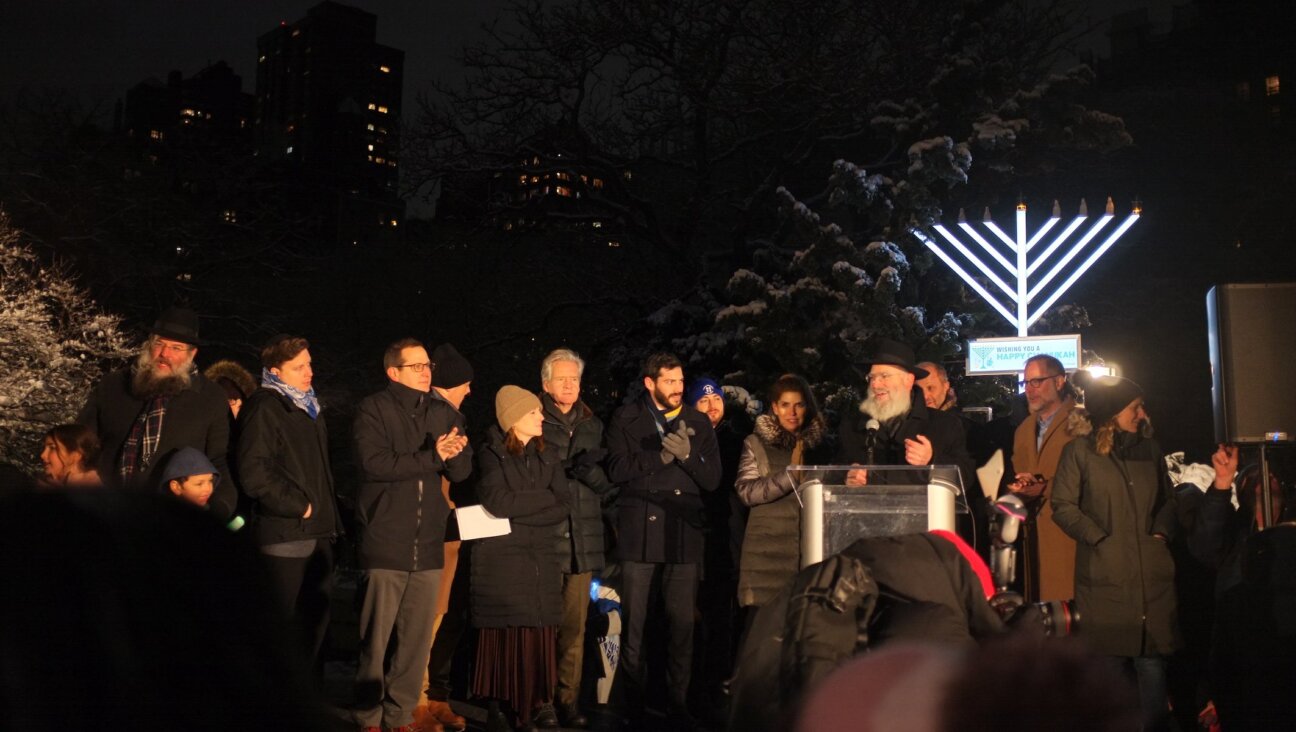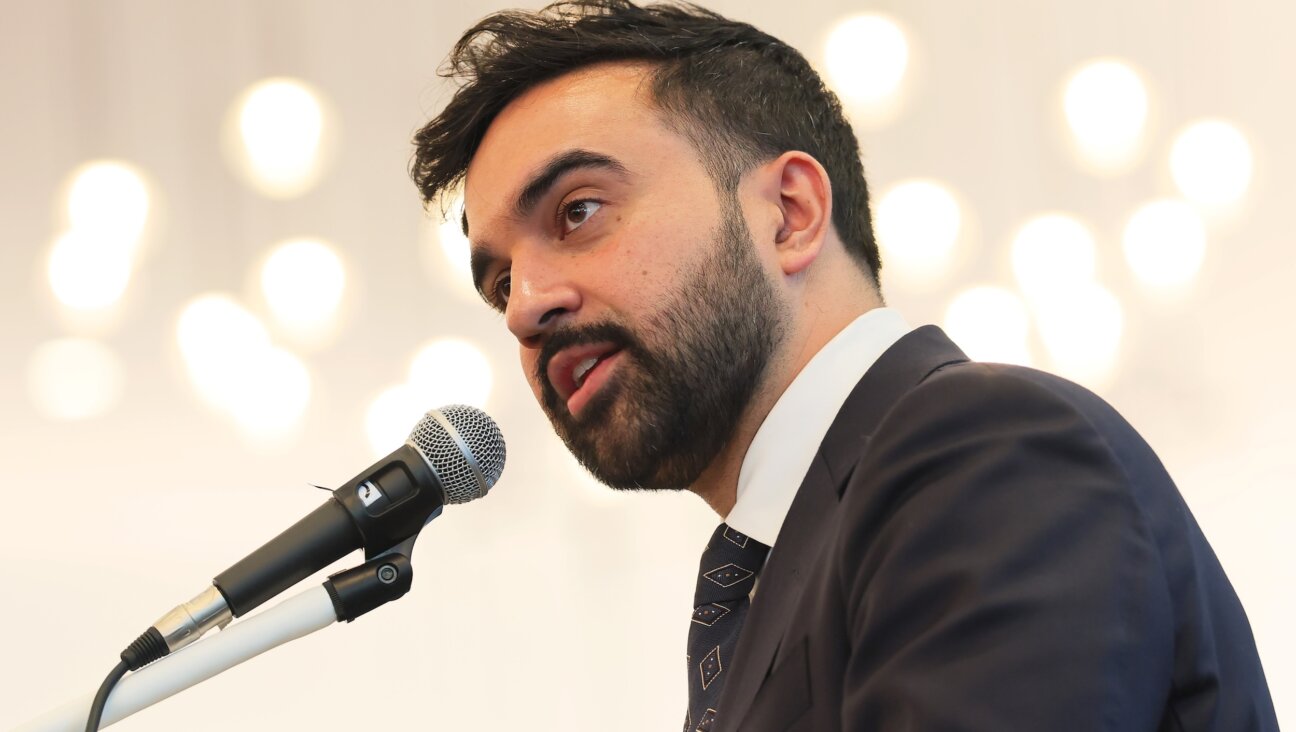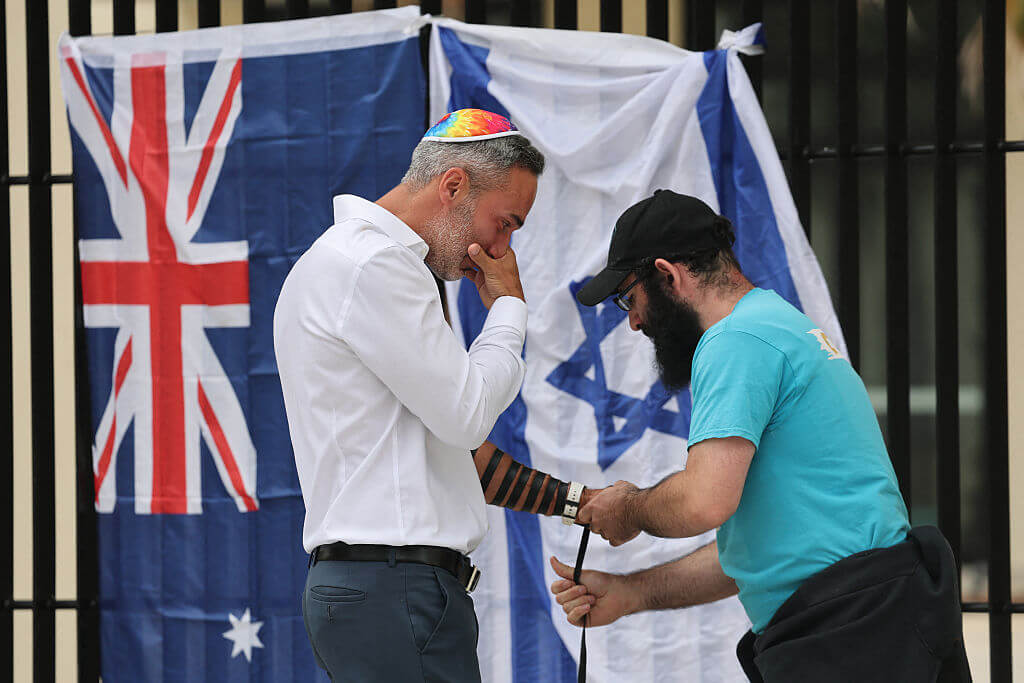Netanyahu vows more active role in Israel’s judiciary fight following a day of tense protests
Netanyahu’s speech came soon after lawmakers passed a law that shields him being removed from office on court order

Graphic by Angelie Zaslavsky
(JTA) — After a day of raucous protests, arrests and clashes in the street protesting the Israeli government’s controversial judicial overhaul, Prime Minister Benjamin Netanyahu gave a televised speech encouraging Israeli unity, pledging to protect minority rights — and vowing that the first major piece of the overhaul plan would still pass next week.
Netanyahu’s speech followed a “National Day of Paralysis” Thursday, in which protesters amassed in large cities across Israel, where they blocked major roads and were met with mounted police and water cannons, as they have at previous protests.
More than 100 protesters were arrested, including Shikma Schwartzman-Bressler, a physicist who is one of the leaders of the protest movement, according to video posted by Israeli journalist Tal Schneider. Another video shared by Schneider showed a former cabinet member and Labor Party politician, Omer Bar-Lev, getting pushed by police at a protest. Demonstrations stretched into the night following Netanyahu’s speech, as well.
Netanyahu’s address, which took a more conciliatory tone than previous remarks he’s made on the subject, followed reports of dissent within his own party, and following a morning in which his government passed the first of several laws that would limit the power of the Supreme Court. The one approved Thursday specifically bars the court from forcing the prime minister into taking a leave of absence.
“Opponents of the reform are not traitors and supporters of the reform are not fascists,” he said. “The vast majority of Israeli citizens, across the political spectrum, love our country, and want to protect our democracy. … I am working to reach a solution. I am attentive to the claims of the other side.”
He added, “We intend, and I intend, to anchor individual rights in law. We will ensure the basic rights of all citizens of Israel: Jews and non-Jews, secular and religious, women, LGBT, everyone — without exception. … We intend to propose clear legislation clear on this subject. I will personally make sure that that happens.”
But Netanyahu defended the overhaul plan as “a strengthening of democracy” that brings Israel’s judicial system in line with the legal systems of democracies such as the United States. He cited remarks by Harvard Law professor emeritus Alan Dershowitz, who has opposed parts of the overhaul plan but said recently that it will not turn Israel “into an autocratic country.”
Netanyahu said his government would still bring the first major piece of the legislation — which gives the coalition control over two Supreme Court appointments per term — to the floor of parliament next week as planned.
“In all the democracies, including the United States, elected officials are those who choose judges,” Netanyahu said. “Is the United States not a democracy? Is New Zealand not a democracy? Is Canada not a democracy?”
(Several critics of Netanyahu’s plan say that the United States’ system is different and has protections and checks and balances that Israel’s governmental system lacks.)
The protests — which included a demonstration in Bnai Brak, a haredi Orthodox city — came shortly after Israel’s government passed the first piece of a string of legislation aimed at significantly limiting the power of Israel’s Supreme Court. The law, which insulates Netanyahu from court-ordered restrictions related to his ongoing trial for corruption, was approved by a bare majority of lawmakers at 6 a.m. on Thursday after a night of fierce debate.
It bars the Supreme Court from ordering a prime minister to take a leave of absence, and says that a prime minister can be removed only if he or she is physically or mentally incapacitated, and only if 75% of government ministers or Knesset lawmakers approve of the decision.
The change appears to open the door for Netanyahu to play a more assertive role in the fight over the broader package of judicial reform bills, which would sap the Supreme Court of much of its power and independence. Israel’s attorney general had ordered Netanyahu to constrain his involvement in the debate over the overhaul because of a conflict of interest related to his ongoing trial. Netanyahu has repeatedly defended the overhaul in public remarks, and with this law on the books, the court will not be able to remove him from office for violating the gag order.
“Tonight I tell you, my friends, citizens of Israel: No more,” Netanyahu said in his speech. “I’m coming in.”
This article originally appeared on JTA.org.














